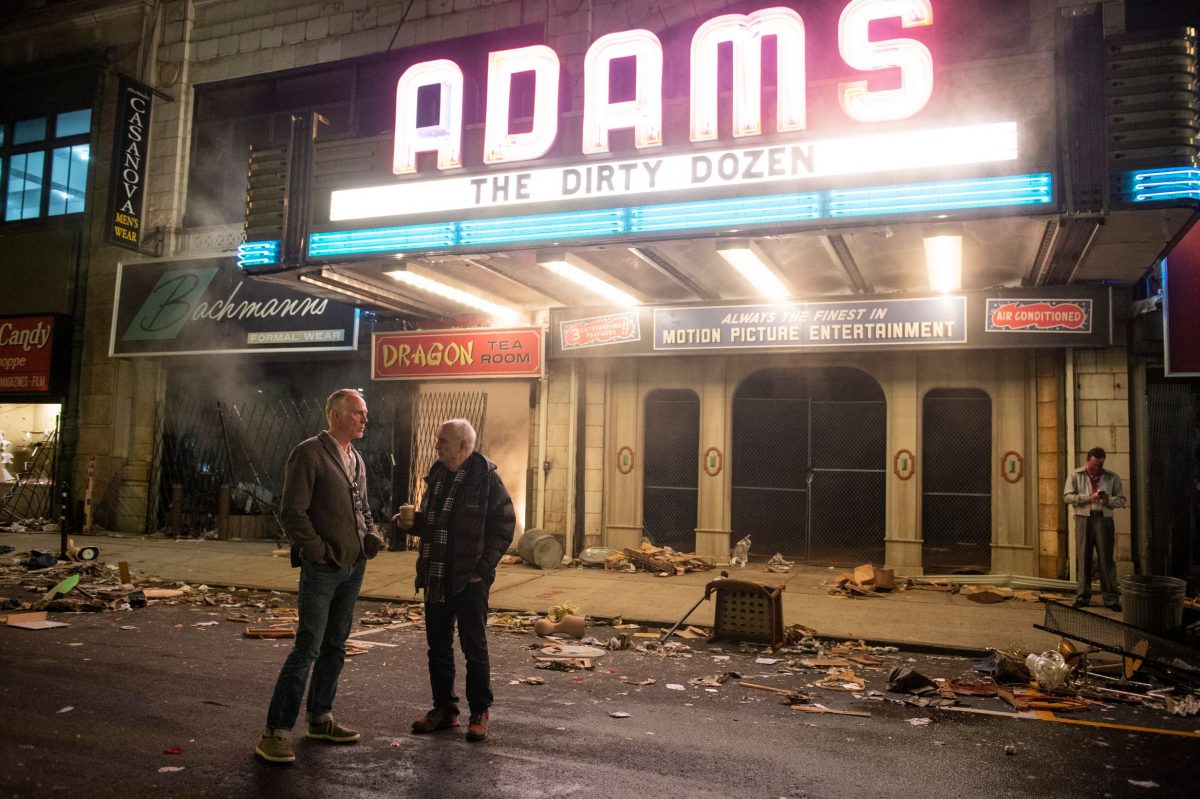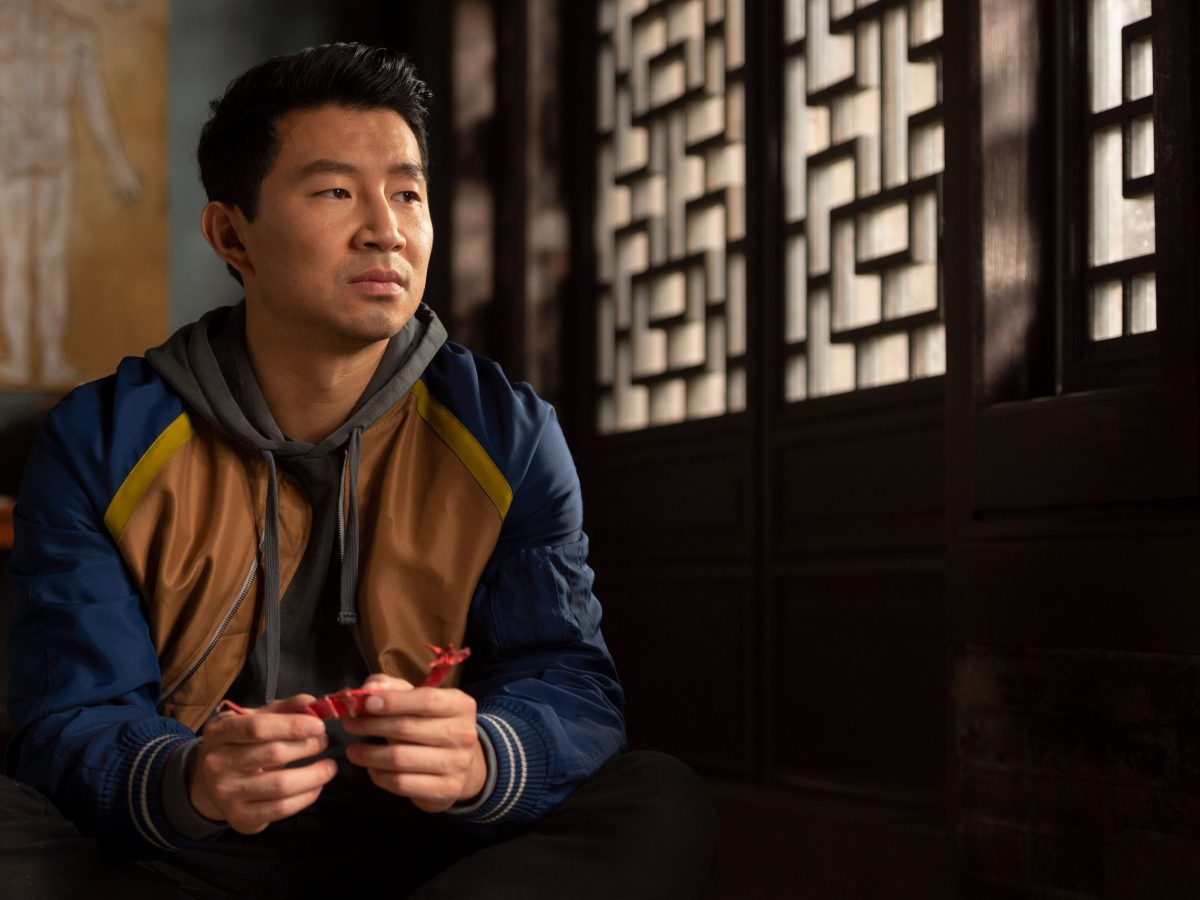From the first episode of The Sopranos, it’s made very clear—you’re watching the decline and fall of the Roman empire.
“Lately, I’m getting the feeling that I came in at the end. The best is over,” laments Tony Soprano, the tortured mob boss of north New Jersey.
Tony, played in the series by the late, great James Gandolfini, looks at the world around him, the people he surrounds himself with, even in his own mirror and sees a shadow of what once was, a world devoid of the spirit that inspired him to join the mafia to begin with, a landscape the series only shows the decaying remains of.
That is, until now. With The Many Saints of Newark, series creator David Chase finally gives us a glimpse of the world that a young Tony Soprano was so enraptured with, and the uncle that he always held up as the greatest man he ever knew—Dickie Moltisanti, the father of Christopher.

Dickie Molisanti, played by Alessandro Nivola, has an air of nobility to him, impeccably dressed with the refined speech and demeanor of a classic gentleman.
But is Dickie the saint that Tony made him out to be? Is this world as grand as Tony wished it was? Hardly.
“This movie underlines what you from the beginning even from the very first from the pilot,” Corey Stoll, who plays Junior Soprano in the film, tells Esquire Middle East.
“Sure, everyone was wearing great suits and smoking cigarettes out of silver cases, and there was real solid foundation to that world, a code and there was a sense of solidity to it. But now that we get to see that world, we can see plainly that certain trappings of it are definitely just aesthetic. Sure, the suits are nicer than tracksuits. But it’s still the same people in there. There’s more rules, but as always, the only real rule is what you can get away with and what you can’t,” Stoll continues.

If anything, that decline is punctuated most plainly through the ways in which Dickie and Tony carry themselves. Dickie pretends to be the good guy. Tony doesn’t.
“Dickie talks a big game about wanting to do the right thing, but commits some really dastardly acts. I don’t remember Tony ever saying, ‘I want to do the right thing. I want to be a good boy,” says Chase.
When The Sopranos wrapped its final season in 2007, Chase famously said he was done with the world forever, and when James Gandolfini passed away in 2013, it seemed sure that we would never again see the character grace screens again. But Warner Bros. never gave up hope that Chase would revive the most acclaimed television series ever made in some capacity, and after nearly a decade and a half, they finally got their wish.
“I had had a conversation with Tom Fontana [Creator of HBO’s Oz] during the second season of The Sopranos, and he had said it would be really cool to explore the world of [Tony’s father and uncle] Johnny and Junior, and that really appealed to me. It never left my head, but I never thought we’d do it,” says Chase.
This wasn’t the first time Chase thought about getting the band back together. Around 10 years ago, he reveals to Esquire Middle East, he had an idea to reunite the cast in the same world, all playing different characters.
“We had an idea to do a movie with The Sopranos cast in the same power hierarchy. It would be about a New Jersey police department that was corrupt. Jim [Gandolfini] would be lieutenant. And [Michael Imperioli as] Chris would be the sergeant, [Tony Sirico as] Paulie would be the old vet, but they’d be cops and uniform in New Jersey, and that was one idea,” Chase says.
Without James Gandolfini around, the idea could never happen. But in going back in time to Tony’s childhood, Many Saints gave Chase the opportunity to work with Gandolfini’s son, Michael.
For Michael, 22, taking on his late father’s most iconic role was a huge undertaking for the young actor, something not lost on his collaborators.
“He handled it with such incredible grace. he was not denying the profundity that he was doing and the pressure that he was under, but he seemed very clearly determined to approach everything with joy and good humor that both really impressive for someone his age and really a gift to everybody else,” says Stoll.

While Michael brought a buoyancy of spirit and a boyishness that we see glimpses of in his father’s portrayal in the series, Chase found it important to make it clear that ultimately, Tony’s story is a tragic one. In following in the footsteps of the flawed Dickie Molisanti, the boy is damning his soul. Just as in the series, Tony Soprano is not a character worth glamorizing, and his time in the mafia will ultimately ruin his life, giving the film a grim inevitability.
That realization led Chase to rewrite the original ending for the film, he reveals to Esquire Middle East.
“In the alternate ending, the theme music from the show plays at young Tony struts down the street, in a very ‘I’m going to be the boss gangster of the world’ kind of way. I just didn’t like it. And I didn’t buy it. And even though I wrote it, it was my idea. I had to relieve everyone else of the stupidity of it,” says Chase.
“I thought, ‘Tony’s not getting into some f*cking cool gang. He’s going to become a killer. A criminal. An unhappy man.”
Ultimately, Many Saints confirms what we always suspected—that the golden age of the mafia was gold-plated at best.
“Even from that first episode, this was always about Tony going through a midlife crisis. His expectations for what his life were going to be was unrealistic. Life was never going to be what he wanted it to be. It couldn’t.”
The Many Saints of Newark is in theaters September 30 across the Middle East
Esquire now has a newsletter – sign up to get it sent straight to your inbox.
Want up-to-the-minute entertainment news and features? Just hit 'Like' on our Esquire Facebook page and 'Follow' on our @esquiremiddleeast Instagram and Twitter account.



